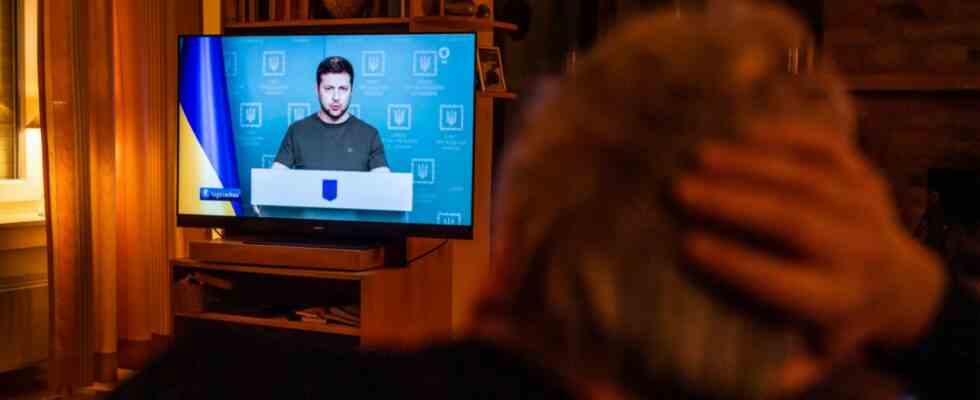The first refugees from Ukraine have also arrived in the Munich district. Beatrix Stosch is a specialist in psychosomatic medicine in Munich. On Saturday, March 19, at the invitation of the Garching Helpers’ Circle, she will give practical tips on how helpers can deal with the refugees and their experiences of war.
SZ: Ms. Stosch, thousands of people are currently fleeing the war in Ukraine, including to Bavaria. Many people in the Munich region want to support them and offer help or accommodation. When making contact, however, some are unsure how best to approach the refugees. What do you advise?
Beatrix Stosch: When war refugees come, it can generally be assumed that they have experienced bad things, perhaps are traumatized. The most important thing then is to be human and to have an open ear. It is certainly not good to probe into what exactly a person has experienced, otherwise there is a risk of re-traumatization. But you shouldn’t make it taboo either. If a refugee feels the need to talk, you should have an open ear. In addition, it is important to give refugees a safe external framework, to convey to them again and again: “You are safe here, nothing can happen to you here. I am here for you now.” In practical terms, this can mean supporting them with visits to the authorities, for example. This also includes talking openly from the start about how long the refugees can stay in a private apartment, for example, so that in the end they don’t have the experience of suddenly having to leave again.
When refugees start worrying and think about Ukraine, how far can helpers absorb them? And when do you need professional help?
Certainly it is only possible to be a listener within a normal human framework. If the people you take in show symptoms of acute stress, such as not being able to sleep, have so-called flashbacks from war experiences, or physical reactions such as sweating, tachycardia or dissociation, they should seek further help.
Beatrix Stosch is a specialist in psychosomatic medicine in Munich.
(Photo: private)
We are receiving an unprecedented amount of pictures of the war from Ukraine, and you can follow the war as a live stream online. What does that do to us?
This is such an unimaginable situation that evokes so many feelings that we may be overwhelmed. That is completely understandable. But when I’m in such a state of overwhelm, I can’t help either. That’s why it’s important to endure this powerlessness that we feel in the face of this information overload, to accept that I, as an individual, cannot end the war.
How can you strengthen yourself in the face of this?
The goal must be to maintain our self-efficacy, as they say in psychology, i.e. the confidence in our own abilities that I can make a difference. It’s a fallacy that the more information I gather about the war, the more prepared I am. On the contrary, this is more likely to contribute to the paralysis. We should better plan specific times, maybe twice a day, when we watch or read the news, but turn off the constant push notifications. And we shouldn’t just talk to others about the war all the time either. It is important to maintain an everyday routine. It’s perfectly okay to make nice things too.
How can you shape such everyday life with and for refugees?
It helps to establish routines, such as cooking together. I also advise physical activity. Feelings always do something with our body and our body influences our feelings. It can therefore be good for refugees to take short walks, to perceive with all their senses, to be in the here and now. It also helps to see what people have always liked to do in their home country, where their skills lie, and to bring that out and let them feel it again. It can be making music, but also small things like asking her for a recipe.
The event of the Garching Helpers’ Circle with Beatrix Stosch begins on Saturday, March 19, at 10 a.m. in the parish hall of the St. Severin Catholic parish in Garching. The 3 G rule applies. Pre-register by email [email protected]. The Refugio Munich association has set up an advice hotline, for more information go to www.refugio-muenchen.de/ukraine.

